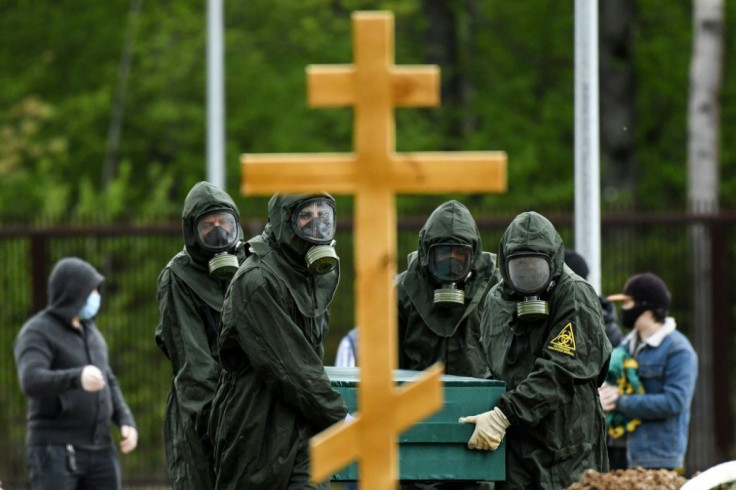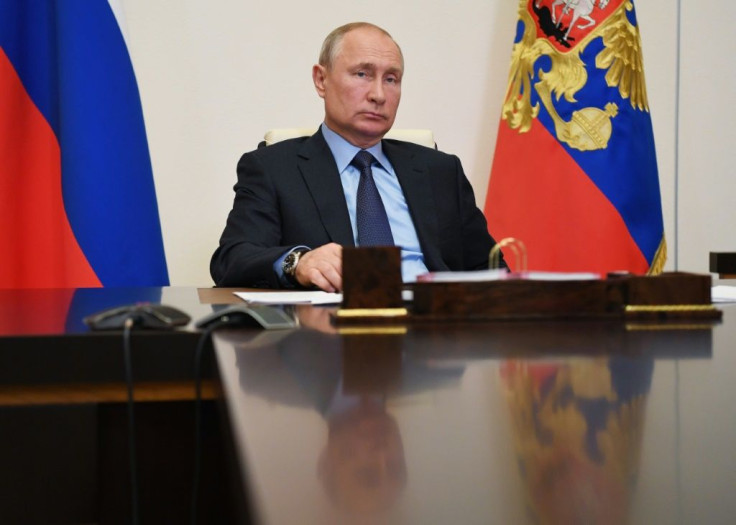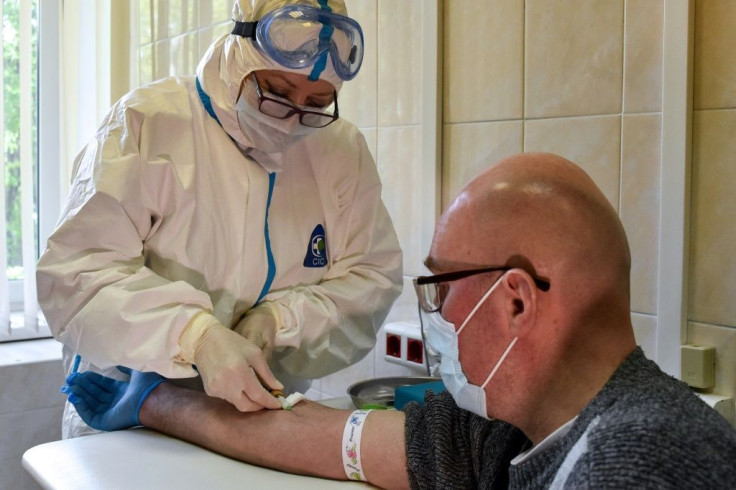Russia Launches Virus Antibody Testing, Says Football To Return

Russia pushed ahead Friday with plans to ease coronavirus restrictions despite reporting more than 10,000 new cases, with its football league set to return next month and thousands being tested for antibodies.
Health officials said 10,598 new infections had been confirmed in the last 24 hours, bringing the country's total to 262,843, the second-highest in the world after the United States.
The number of cases has surged in recent weeks but officials say this is largely due to extensive testing, with more than six million tests carried out so far, and point to Russia's relatively low mortality rate as proof the country is managing the crisis.
The number of confirmed dead from the virus stood at 2,418 as of Friday, about 10 times less than in European countries with similar infection levels.
Eager to get the economy moving again, President Vladimir Putin this week eased a lockdown in place since late March to allow many people back to work.
Russia's football association said Friday that the country's Premier League would restart its suspended season from June 21, though behind closed doors.
"Unfortunately the remaining matches will be held without spectators," league president Sergei Pryadkin said. "We are sure that fans will support their teams from home."

Moscow, which accounts for roughly half of Russia's cases, remains on strict lockdown until the end of May, with residents only allowed to leave their homes for brief trips or to travel to work with a permit. Masks and gloves are mandatory in shops and on public transport.
The city on Friday launched an ambitious testing programme to check for coronavirus antibodies, with some 70,000 invitations to be sent to residents every three days.
"I received an SMS and a letter telling me there was the opportunity to get a free test for immunity and I decided to use it," said Margarita Platonova, at a lab where masked Muscovites were giving blood samples and being swabbed.

The young woman, a diving instructor thrown out of work by the crisis, said she was anxious to see the results.
"It's important for me to know if I have immunity," she said. "I wanted to check. I'm completely healthy. I was told (the result) will arrive in the post in three days."
Critics have cast doubt on Russia's low mortality rate, accusing authorities of under-reporting deaths in order to play down the scale of the crisis.
Health officials say one of the reasons Russia's count is lower is that only deaths directly caused by the virus are being included, while other countries include nearly all deaths of those infected regardless of the final cause.
Authorities also say that since the virus came later to Russia, the country had more time to prepare hospital beds and launch wide-scale testing to slow its spread.
Speaking to health and defence officials on Friday, Putin said that Russia had more than 148,000 beds set aside to treat coronavirus patients.
He also lambasted officials for not following through on his promise to pay bonuses to frontline health workers dealing with the virus.
Putin in April promised monthly salary increases equivalent to between $340 and $1,100 for doctors, nurses and ambulance drivers treating virus patients, but many have complained of the bonuses not being paid or being tied up in red tape.
"Listen to me, listen carefully," Putin told the officials on a video-conference call. "We agreed, and it was said clearly and plainly, that this money should be paid."
© Copyright AFP {{Year}}. All rights reserved.




















